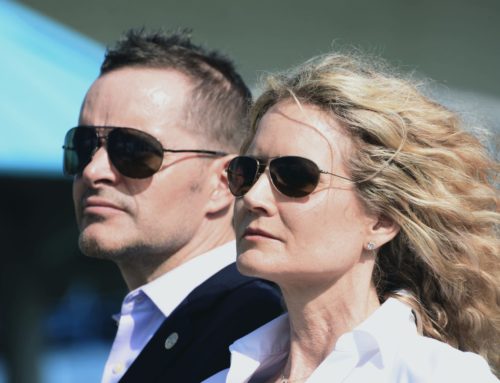As a child growing up in Texas, I was terrified of polio’s dangers and personally knew several people who were paralyzed by this insidious disease.
That’s probably the main reason I applaud the philanthropic work of Bill Gates, co-founder and chairman of Microsoft, and Michael Bloomberg, businessman and mayor of New York, who laid out “Our Plan to Eradicate Polio” in a letter published Feb. 28 in the Wall Street Journal. They hope to eradicate polio by 2018.
In their letter, both men said they want to take the same approach to philanthropy that they used in starting companies. They stressed the importance of a culture of innovation and accountability. These men have already collaborated on two major global projects: reducing tobacco use, which threatens to kill 1 billion people by the end of this century, and providing women with access to information and services they need to plan their families, leading to safer births and fewer maternal deaths.
“While the Salk and Sabin vaccines ended the threat of polio in America and much of the developed world during the 1960s,” Bloomberg and Gates wrote, “polio continues to paralyze children in a handful of developing countries.”
Poliovirus is an infectious disease. It can spread as a result of poor sanitation and hygiene, and sanitation improvements and routine immunization have helped eradicate the disease in many countries.
As recently as 1988, polio was prevalent in more than 125 countries, afflicting more than 350,000 people annually. By 2012, worldwide polio cases had declined to fewer than 225.
The spread of the virus remains a threat in only three countries: Afghanistan, Nigeria and Pakistan. Gates discussed the operational challenges of vaccinating children in these countries, which have densely populated cities with poor sanitation, and places that are hard to reach and where violence is prevalent.
In all three countries, the Taliban have attacked people working to eradicate polio. In February, 10 people were shot to death at two health clinics during a polio immunization campaign in Nigeria.
The Gates Foundation has been investing in polio eradication for many years. In February, Bloomberg Philanthropies joined the effort with a $100 million commitment.
To eliminate polio requires innovative technology and cutting-edge tools such as maps that combine cartography and database technology to help locate children who have not been reached by vaccine teams.
Despite the huge outlays, the Global Polio Eradication initiative will require at least $5.5 billion more to reach its goal. National governments, the World Health Organization, Rotary International, the U.S. Centers for Disease Control and Prevention, UNICEF and many philanthropic organizations have contributed.
Why is so much effort and money being devoted to eliminate polio, given that relatively few people are affected by it now? The answer is that polio will make a comeback if it is not eradicated.
So far, the Bill & Melinda Gates Foundation’s strongest focus has been on vaccines for diarrhea and pneumonia, which have saved millions of lives.
The Gates Foundation is the largest transparently operated, private foundation in the world. With $28 billion from Bill Gates, the foundation’s primary aims are to enhance health care and reduce extreme poverty globally and, in America, to expand educational opportunities and access to information technology.
Hopefully, the work of Bill Gates, his wife, Melinda, and Bloomberg can serve as a vaccine of good to help fight escalating threats of global terrorism.
America is blessed to have smart, talented people such as the Gateses and Bloomberg turning their efforts to philanthropy. They are carrying on the traditions of such notable predecessors as Andrew Carnegie, John Rockefeller and Henry Ford.
Bloomberg has spent billions of dollars on charitable endeavors, from education and controlling tobacco use to supporting gun control legislation.
I think the Gateses and Bloomberg should share the Nobel Prize for Peace.
Originally published in the Sarasota Herald-Tribune

